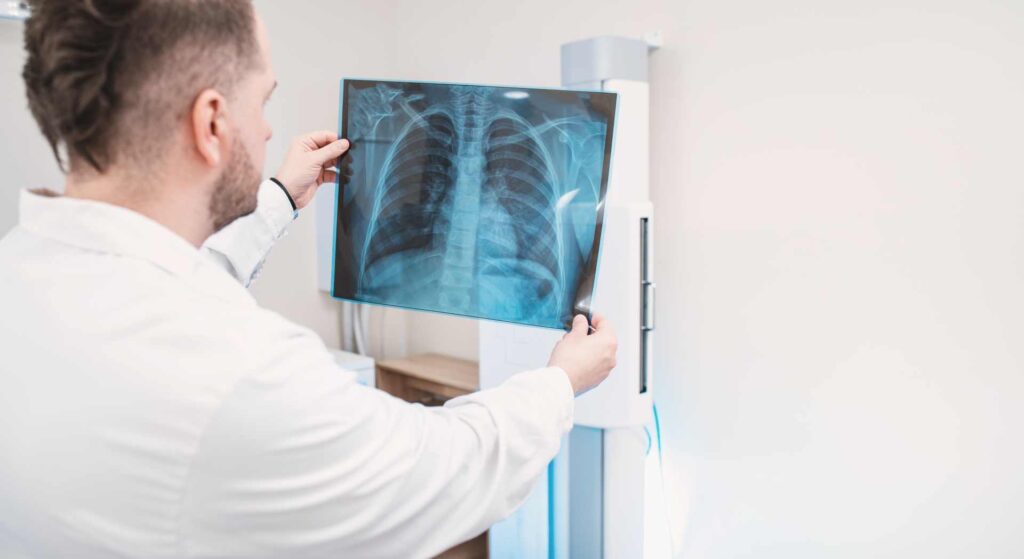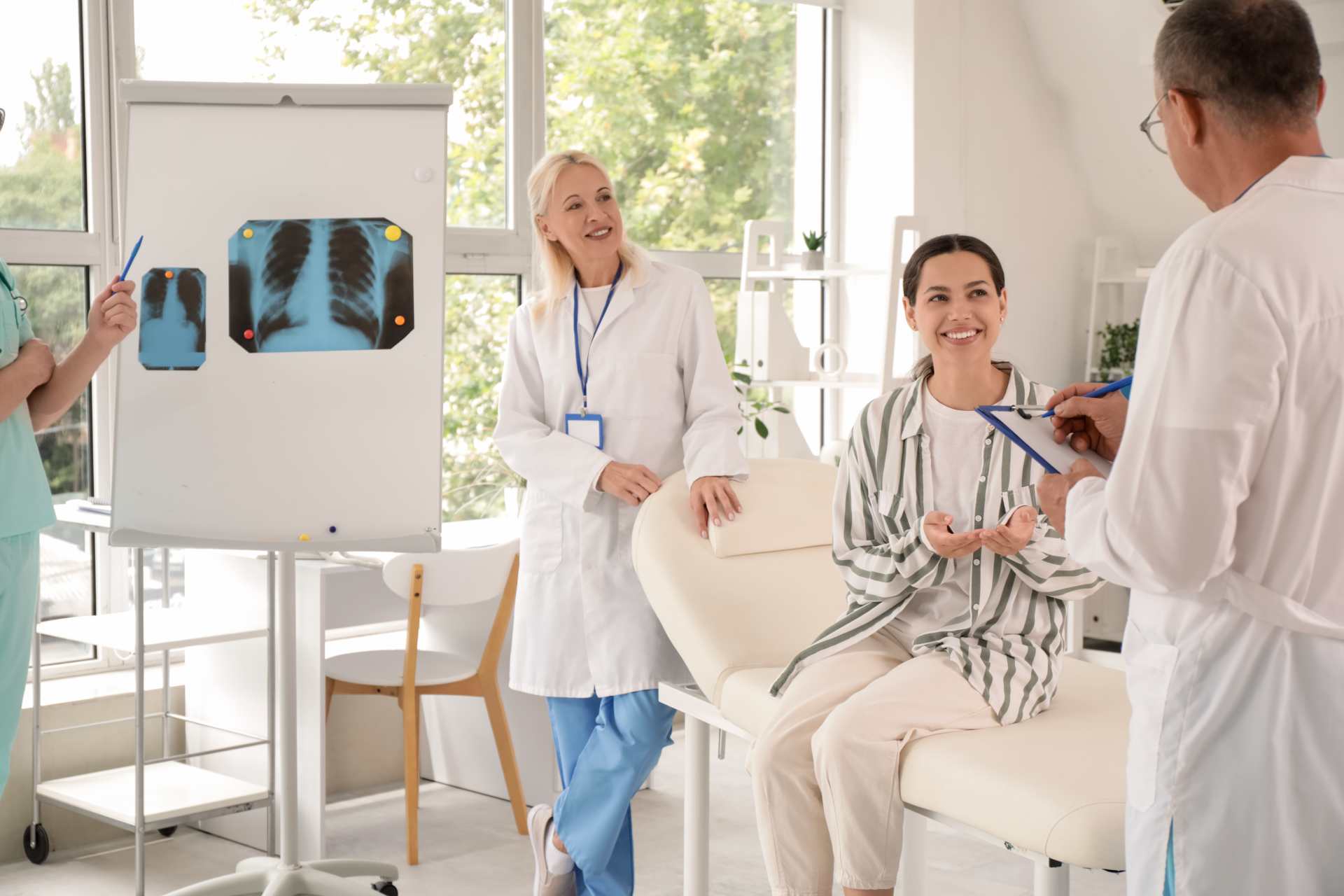Experiencing a car accident can be traumatic, both physically and emotionally. While some injuries are obvious right away, others might not show symptoms immediately. That’s why a thorough medical evaluation is essential after an accident. Understanding what tests are done after a car accident, from physical examination to X-rays, can help identify hidden injuries and ensure prompt treatment, preventing complications. Car accident doctors play a vital role in diagnosing and treating these injuries, helping you recover fully.
Comprehensive Physical Examination After a Car Accident
The first step in the medical evaluation process is a comprehensive physical examination. During this examination, the doctor will check for visible injuries such as cuts, bruises, and swelling, as well as signs of more serious internal injuries. They will assess your overall physical condition, ask about your symptoms, and inquire about the details of the accident.
The doctor will palpate (gently press) different areas of your body to check for tenderness, deformities, or abnormal masses. They will also evaluate your range of motion, reflexes, and neurological function to identify any potential damage to the nervous system. This thorough examination helps determine the need for further diagnostic tests, ensuring that no injury goes unnoticed.
X-Rays: Identifying Fractures and Bone Injuries
 X-rays are one of the most common imaging tests ordered after a car accident. They are particularly useful for detecting fractures, dislocations, and other bone injuries. X-rays work by passing a small amount of radiation through the body, which is then captured on film or a digital sensor to create an image of the bones.
X-rays are one of the most common imaging tests ordered after a car accident. They are particularly useful for detecting fractures, dislocations, and other bone injuries. X-rays work by passing a small amount of radiation through the body, which is then captured on film or a digital sensor to create an image of the bones.
Doctors typically order X-rays if there is pain, swelling, or deformity in a specific area, suggesting a possible bone injury. X-rays can quickly and effectively reveal fractures, allowing for immediate treatment to prevent further damage. They are also used to monitor the healing process of broken bones over time.
CT Scans: Diagnosing Internal Injuries Post-Accident
CT (computed tomography) scans provide a more detailed view of the body’s internal structures compared to X-rays. This imaging technique combines multiple X-ray images taken from different angles to create cross-sectional images of the body. CT scans are invaluable for diagnosing internal injuries that may not be visible on an X-ray.
After a high-impact accident, doctors may order a CT scan to check for internal bleeding, organ damage, and injuries to the brain. The process involves lying on a table that slides into a large, doughnut-shaped machine. The scan is quick and non-invasive, and it provides detailed images that help doctors make accurate diagnoses and develop effective treatment plans.
MRI Scans: Detecting Soft Tissue Damage
Magnetic resonance imaging (MRI) scans are particularly effective for identifying injuries to soft tissues, such as muscles, ligaments, and tendons. Unlike X-rays and CT scans, which use radiation, MRIs use powerful magnets and radio waves to produce detailed images of the body’s internal structures.
MRIs are often preferred when there are concerns about injuries to the head, neck, or spine. For example, if you experience persistent pain, numbness, or weakness after an accident, an MRI can help identify issues like herniated discs, torn ligaments, or muscle strains. The process involves lying still inside a large, cylindrical machine while it takes images. Although it can take longer than other imaging tests, the detailed information it provides is crucial for diagnosing and treating soft tissue injuries effectively.
Ultrasound: Assessing Abdominal Trauma
Ultrasound is a valuable diagnostic tool for assessing abdominal injuries following a car accident. This non-invasive test uses high-frequency sound waves to create images of the internal organs, allowing doctors to detect injuries such as internal bleeding, organ damage, or fluid buildup. The process involves applying a gel to the skin and moving a transducer over the abdomen, which sends sound waves into the body. These waves bounce back, creating images on a screen that doctors can analyze.
Ultrasound is particularly effective for evaluating injuries to organs like the liver, spleen, kidneys, and bladder. It is a quick, painless procedure that can provide immediate insights, making it an essential part of the post-accident evaluation process. By identifying abdominal trauma early, doctors can initiate appropriate treatments and interventions to prevent further complications.
Neurological Evaluations: Detecting Brain and Nerve Injuries
Neurological evaluations are critical in the aftermath of a car accident, as they help detect brain and nerve injuries that might not be immediately obvious. These assessments typically involve a series of tests designed to evaluate cognitive function, coordination, reflexes, and sensory responses. Doctors look for signs of concussion, traumatic brain injury (TBI), and other neurological impairments.
Common symptoms of brain and nerve injuries include headaches, dizziness, confusion, memory problems, numbness, and difficulty concentrating. Prompt evaluation is essential because early detection and treatment of neurological injuries can significantly improve outcomes. Neurological assessments might include imaging tests such as CT scans or MRIs, as well as cognitive tests and physical examinations.
Blood Tests: Identifying Internal Complications
Blood tests play a vital role in detecting internal complications following a car accident. These tests can reveal a range of issues, including internal bleeding, infections, and other systemic problems. For instance, a complete blood count (CBC) can help identify signs of internal bleeding by detecting anemia, while other blood tests can indicate organ damage or inflammation.
Doctors may order blood tests if there are symptoms such as unexplained pain, weakness, or signs of infection like fever. Blood tests are relatively quick and minimally invasive, providing crucial information that guides further diagnostic and treatment decisions. By identifying internal complications early, healthcare providers can intervene promptly, improving the chances of a full recovery.
Echocardiogram: Checking for Cardiac Injuries
An echocardiogram is a specialized ultrasound test used to assess heart function and detect cardiac injuries that may occur as a result of a car accident. This test involves using sound waves to create detailed images of the heart’s structure and function. It can identify issues such as heart contusions, pericardial effusion (fluid around the heart), and other cardiac abnormalities.
Echocardiograms are particularly relevant in cases where the chest has been subjected to blunt force trauma. Symptoms that might prompt this test include chest pain, shortness of breath, and abnormal heart rhythms. By evaluating the heart’s condition, doctors can determine if any immediate or long-term interventions are needed to address cardiac injuries.
Know tips on how to prepare for your doctor’s appointment after a car accident!
Why Choose AICA Orthopedics for Your Post-Car Accident Care?
After a car accident, the road to recovery can feel overwhelming. At AICA Orthopedics, we understand the physical and emotional toll an accident can take. Our team of dedicated car accident doctors is here to offer you a safe space and expert care.
We utilize advanced diagnostics like X-rays, MRIs, and CT scans to ensure a complete picture of your injuries, from soft tissue damage to fractures. This allows us to create a personalized treatment plan tailored specifically for you. We alsol ensure clear insurance documentation for a smooth recovery process.
Trust AICA Orthopedics to guide you on your journey back to optimal health. Contact us to learn more or find the nearest AICA clinic today to start your road to recovery!





